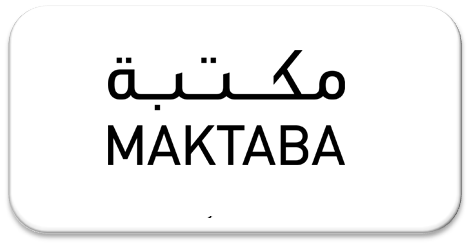Politisasi Sertifikat Halal
Abstract
Indonesia is a country that has a Muslim majority population, so there are many rules that are intended and specifically for Muslims, one of which is related to rules in food matters. The government in providing this service seeks to provide guarantees for halal food products for Muslim consumers through halal certificate instruments. This research is a literature study that analyzes the politicization of halal certificates in the MUI fatwa. A qualitative approach is used to analyze and interpret the MUI fatwa in granting halal certificates and the politics contained therein. The data was obtained from the publications of several journals and e-books that were accessed through Google Chrome and Google Scholar. Collecting data related to the MUI fatwa in halal labeling in its political aspect. This research procedure is carried out by means of a literature review. The data analysis process was carried out by reducing the data obtained from the search results of data from Google Chrome and Google Scholar. After reducing the data, it is presented in the form of a description to explain the politicization of the halal certificate in the MUI fatwa. The next step is to draw conclusions on the results of the analysis to produce new findings on the politicization of the MUI fatwa halal certificate. Halal certification issues are handled by 3 institutions namely MUI, Ministry of Health, and Ministry of Religion through the signing of a Joint Decree (SKB) of the three institutions in 1996. Halal certification is then regulated by various laws that bind it.
Negara Indonesia merupakan negara yang memiliki penduduk mayoritas muslim sehingga banyak aturan yang ditujukan dan dikhususkan untuk orang muslim salah satunya yakni terkait aturan dalam masalah makanan. Pemerintah dalam memberikan layanan ini berikhtiar dengan cara memberikan jaminan produk makanan halal bagi konsumen muslim melalui instrumen sertifikat halal. Penelitian ini merupakan studi literatur yang menganalisis politisasi dalam sertifikat halal pada fatwa MUI. Pendekatan kualitatif digunakan untuk menganalisis dan menafsirkan fatwa MUI dalam pemberian sertifikat halal serta politik yang terkandung didalamnya. Data diperoleh dari pubikasi beberapa jurnal serta e-book yang diakses melalui google chroom maupun google scholar. Pengumpulan data terkait fatwa MUI dalam pelabelan halal dalam aspek politiknya. Prosedur penelitian ini dilakukan dengan kajian studi literatur. Proses analisis data dilakukan dengan mereduksi data yang diperoleh dari hasil pencarian data dari google chroom maupun google scholar. Setelah melakukan reduksi data disajikan dalam bentuk deskripsi untuk menjelaskan politisasi dalam sertifikat halal pada fatwa MUI. Selanjutnya yakni melakukan penarikan kesimpulan terhadap hasil analisis untuk menghasilkan temuan baru pada politisasi sertifikat halal fatwa MUI. Masalah sertifikasi halal ditangani oleh 3 lembaga yaitu MUI, Kementerian Kesehatan, dan Kementerian Agama melalui penandatanganan Surat Keputusan Bersama (SKB) tiga lembaga tersebut pada tahun 1996. Sertifikasi halal kemudian diatur dengan berbagai undang-undang yang mengikatnya.
Keywords
Full Text:
PDFReferences
Agus, P. A. (2017). Kedudukan Sertifikasi Halal Dalam Sistem Hukum Nasional Sebagai Upaya Perlindungan Konsumen Dalam Hukum Islam. Amwaluna: Jurnal Ekonomi Dan Keuangan Syariah, 1(1), 150–165. https://doi.org/10.29313/amwaluna.v1i1.2172
Apriyantono, A. N. (2003). Panduan Belanja dan Konsumsi Halal.
Charity, M. L. (2017). Jaminan Produk Halal di Indonesia. Jurnal Legislasi Indonesia, 14(1), 99–108.
Henderson, J. C. (2016). Halal food, certification and halal tourism: Insights from Malaysia and Singapore. Tourism Management Perspectives, 19, Part B, 160–164. https://doi.org/https://doi.org/10.1016/j.tmp.2015.12.006
Hidayat, A. S., & Siradj, M. (2015). Sertifikasi Halal dan Sertifikasi Non Halal pada Produk Pangan Industri. AHKAM : Jurnal Ilmu Syariah, 15(2), 199–210. https://doi.org/10.15408/ajis.v15i2.2864
Majelis Ulama Indonesia. (2015). Sistem dan Prosedur Penetapan Fatwa Produk Halal Majelis Ulama Indonesia.
Raufu, A., & Naqiyuddin, A. (2014). People ’ s Awareness on Halal Foods and Products : Potential Issues for Policy-Makers. Procedia - Social and Behavioral Sciences, 121(September 2012), 3–25. https://doi.org/10.1016/j.sbspro.2014.01.1104
Ridwan, M. (2019). Nilai Filosofi Halal Dalam Ekonomi Syariah. Profit : Jurnal Kajian Ekonomi Dan Perbankan Syariah, 3(1), 14–29. https://doi.org/10.33650/profit.v3i1.537
Roberts, R. H. (2015). Religion and Economic Life. International Encyclopedia of the Social & Behavioral Sciences (Second Edition), 258–262. https://doi.org/https://doi.org/10.1016/B978-0-08-097086-8.84028-3
Sayekti, N. W. (2014). Jaminan Produk Halal dalam Perspektif Kelembagaan. Jurnal Ekonomi Dan Kebijakan Publik, Vol. 5 No.(November), 193–209. http://id.portalgaruda.org/?ref=author&mod=profile&id=583667
DOI: https://doi.org/10.29103/jspm.v3i2.8051
 Article Metrics
Article Metrics
 Abstract Views : 209 times
Abstract Views : 209 times
Refbacks
Copyright (c) 2022 Lutfi Rosyad Alfikri, Ahmad Fauzi

This work is licensed under a Creative Commons Attribution-ShareAlike 4.0 International License.
INDEXED BY:




.png)









Redaksi Jurnal Ilmu Sosial dan Ilmu Politik Malikussaleh (JSPM): Gedung Fakultas Ilmu Sosial dan Ilmu Politik Universitas Malikussaleh. Kampus Bukit Indah Jln. Sumatera No.8, Kec. Muara Satu Kota Lhokseumawe, Prov. Aceh, Indonesia. eMail: jspm@unimal.ac.id

This work is licensed under a Creative Commons Attribution-NonCommercial-ShareAlike 4.0 International License



.png)



